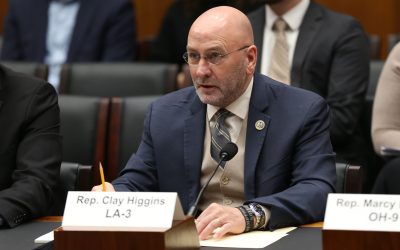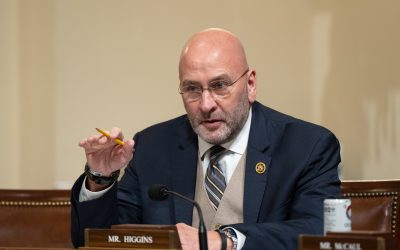WASHINGTON, D.C. – House Homeland Security Border Security, Facilitation, and Operations Subcommittee Ranking Member Clay Higgins (R-LA) introduced HR. 4761, the DHS Opioid Detection Resilience Act of 2019, bipartisan legislation ensuring U.S. Customs and Border Protection (CBP) agents have the necessary equipment to detect synthetic opioids and to improve detection capabilities as new drug analogs are identified.
Homeland Security Committee Ranking Member Mike Rogers (R-AL), former Chairman Michael McCaul (R-TX), former Chairman Peter King (R-NY), Congresswoman Yvette Clarke (D-NY), Congressman John Joyce (R-PA), Congressman John Katko (R-NY), and Congressman Max Rose (D-NY) joined Congressman Higgins in introducing the bill.
The DHS Opioid Detection Resilience Act of 2019 requires the Commissioner of CBP to implement a strategy ensuring CBP chemical screening devices are able to identify narcotics in an operational environment with purity levels of 10% or less. According to the 2018 Drug Enforcement Administration (DEA) National Drug Threat Assessment, fentanyl seized at the southwest border tends to be less than 10% pure. These changes would fill the detection capability gap that currently exists. The bill also requires DHS to implement a plan for the long-term development of a centralized spectral database for chemical screening devices, allowing DHS to push out data to the field as new drug analogs or spectra are identified.
Congressman Higgins issued the following statement:
“Stopping the flow of illegal drugs across our southern border and at ports of entry is a top priority for our CBP law enforcement officers. This includes fentanyl and other synthetic opioids that can be difficult to detect. Our legislation ensures that DHS has the necessary equipment to detect synthetic opioids and the ability to adapt as smuggling methods evolve. We want to prevent this poison from ever reaching American communities, and our bill helps law enforcement carry out that mission.”
Homeland Security Committee Ranking Member Rogers issued the following statement:
“Fentanyl and other synthetic opioids continue to wreak havoc on families and communities across the nation. Rep. Higgins’ DHS Opioid Detection Resilience Act of 2019 seeks to address the crisis from the front lines by ensuring CBP officers are able to detect and stop synthetic opioids from entering the country. This measure is particularly needed as drug traffickers adapt their smuggling tactics to defeat current technology. I thank Rep. Higgins for taking the lead on such a vital piece of legislation that has the potential to prevent millions of lethal doses of synthetic opioids from making their way into American communities.”
View a one-pager on the DHS Opioid Detection Resilience Act of 2019 here.



